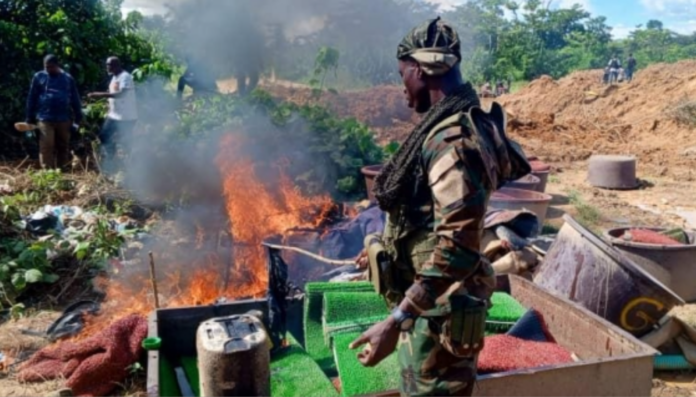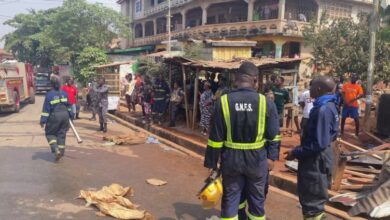Civil Society Groups Raise Alarm Over Illegal Mining in Ghana
Civil Society Groups Raise Alarm Over Illegal Mining in Ghana

- The organizations contend that existing laws do not hold mining companies accountable
- This situation has worsened poverty levels in host communities,
- In response to the crisis, the government has implemented measures
Civil society organizations, including the Wassa Association of Communities Affected by Mining (WACAM), the Centre for Public Interest Law (CEPIL), and the Centre for Environmental Impact Analysis (CEIA), have voiced serious concerns regarding the ongoing destruction caused by illegal and surface mining operations in Ghana.
These groups argue that inadequate mining regulations, particularly the Minerals and Mining Act of 2006 (Act 703), have allowed irresponsible mining practices to flourish. They describe illegal mining, often referred to as “galamsey,” as a significant threat to Ghana’s natural resources.
The organizations contend that existing laws do not hold mining companies accountable for environmental violations, such as cyanide spills, which pose severe risks to public health and the environment.
Additionally, compensation for displaced farmers has been flagged as a critical issue. The groups highlight that multinational mining companies often offer minimal compensation to impoverished farmers whose lands are appropriated for mining activities.
Lacking adequate negotiating power, these farmers receive unfair settlements, leading to both economic hardship and physical displacement.
This situation has worsened poverty levels in host communities, forcing once-thriving farmers to become miners, often resorting to dangerous practices, including the use of cyanide in small-scale mining and galamsey operations. The organizations assert that the lack of strong mining regulations and enforcement mechanisms has contributed to this transformation, as the current mining boom unfolds.
To combat these challenges, the civil society organizations have proposed several solutions, including:
- A non-partisan approach to address all forms of surface mining.
- A moratorium on the issuance of mining licenses across all categories.
- Joint citizen mass actions involving clergy, churches, workers, market women, media, and traditional authorities to hold the government accountable for its commitments against surface mining and galamsey.
- A comprehensive review of mining laws and regulations to incorporate robust environmental safeguards.
In response to the crisis, the government has implemented measures, such as deploying military personnel to forest reserves and water bodies as part of the “Operation Halt” initiative, aimed at cracking down on illegal mining activities.





